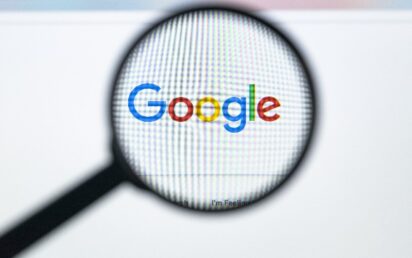The European Union regulator has said Google must sell part of its advertising business in a preliminary antitrust ruling following a two-year investigation.
The European Commission has sent Google a Statement of Objections over ‘abusive practices in online advertising technology’ which it says breached EU antitrust rules by distorting competition.
Google provides several AdTech services that intermediate between advertisers and publishers in order to display ads on websites or mobile apps. It operates two ad buying tools, Google Ads and DV360; publisher ad server DoubleClick For Publishers (DFP); and ad exchange AdX.
The Commission said that, since at least 2014, Google abused its dominant positions by favouring its own exchange AdX in the ad selection auction run by its dominant publisher ad server DFP. It did this, according to the investigation, by informing AdX in advance of the value of the best bid from competitors which it had to beat to win the auction.
It also favoured AdX in the way its ad buying tools Google Ads and DV360 place bids on ad exchanges: for example, Google Ads avoided competing ad exchanges and mainly placed bids on AdX, thus making it the most attractive ad exchange.
“The Commission is concerned that Google’s allegedly intentional conducts aimed at giving AdX a competitive advantage and may have foreclosed rival ad exchanges,” said the preliminary ruling. “This would have reinforced Google’s AdX central role in the AdTech supply chain and Google’s ability to charge a high fee for its service.”
The EC said only the mandatory divestment by Google of part of its services would address its competition concerns.
“A behavioural remedy is likely to be ineffective to prevent the risk that Google continues such self-preferencing conducts or engages in new ones,” it said. “Google is active on both sides of the market with its publisher ad server and with its ad buying tools and holds a dominant position on both ends.
“Furthermore, it operates the largest ad exchange. This leads to a situation of inherent conflicts of interest for Google.”
Dan Taylor, vice-president of global ads at Google, said: “Our advertising technology tools help websites and apps fund their content, and enable businesses of all sizes to effectively reach new customers.
“Google remains committed to creating value for our publisher and advertiser partners in this highly competitive sector. The commission’s investigation focuses on a narrow aspect of our advertising business and is not new. We disagree with the EC’s view and we will respond accordingly.”
Meanwhile Google must postpone the launch of its artificial intelligence chatbot Bard in the European Union after the Irish Data Protection Commission – Google’s main European data supervisor under the bloc’s General Data Protection Regulation – raised privacy concerns.


